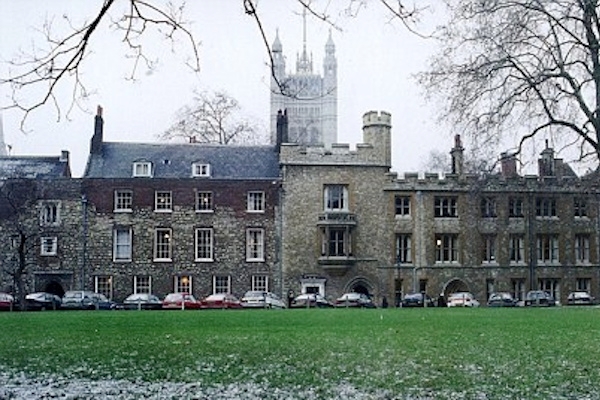Guests at The Spectator’s schools conference on Thursday arrived via the stunning grounds of Westminster School (above), one of the best not just in the country but the world. It was fitting setting. The great irony about the British schools debate is that while our state schools may languish at 25th place in the global rankings, our private schools are first. It’s not as if Britain can’t do teaching: we can, better than anyone. What we can’t seem to do is expand what’s good. Michael Gove’s Academies Act allowed any private school to open a state school and expand — but they have been slow to respond.
Now Westminster School has teamed up with the Harris Federation to open a sixth form which will educate 250 pupils for free. It will be academically-selective (free schools can be, at sixth-form level) and it is an example of the way to save British education.
As I argued in my Telegraph column yesterday, free schools are expanding at a discouragingly slow rate. They educate 0.4 per cent of pupils now, and it may be 0.8 per cent in 2015. They may become as good as the best private schools, but it may take ages. Westminster School another way: to take one of the best educational models in the land, and expand it. Together with Harris, it will give children from ordinary backgrounds an education that would be beyond the means of all but the superrich.
I share Andrew Adonis’s frustration that Britain’s brilliant private schools have shown so little interest in sponsoring state schools. I blame the ownership model. Most of these grand schools are run by trustees of charities, who prefer an easy life. Why take the risk of opening a new school that may go wrong and damage your reputation? Charities tend not to expand: their remit is to look after one school and that’s it.
This is why I’m in favour of profitseeking companies, which have accounted for the vast majority of school expansion in Sweden. They will go wherever demand is greatest – often sink estates. In Sweden, some debate whether non-profitseeking schools should be banned – because they tend to be lazier, preferring waiting lists to expansion. To many Swedes, profitseeking model is the surest guarantor of social justice.
In my more illiberal moments, I wonder if all private schools should be forced to be run as profitseeking companies just so they would have an incentive to expand. But perhaps the mood is changing. Westminster School should be warmly congratulated for sharing with wider society its incredible education formula, and in letting 250 children have a far better chance – not just at university, but at life.
The Old Labour definition of fairness is to snarl at private schools. The Conservative way should be to expand excellence. If David Cameron doesn’t mess up the next election (a big if, I know) then school reform will be irreversible and within 10-15 years all secondary education could be run by about 15-20 different school chain groups. If Westminster is one of them, then its current management will have achieved something historic.
Other private school head teachers should look at this and ask: what do I want to achieve? Sit here, jack up fees and educate the spoiled and often dim sons and daughters of the global elite – or take my school’s ethos and talents and project it nationally, bringing it to hundreds, perhaps thousands of bright kids?
As the saying goes: the future of a country is not decided on a battlefield, but determined in a classroom. Westminster’s linkup with Harris is the kind of alliance that could transform education in Britain. We need far, far more of it.
UPDATE: As CoffeeHousers point out, this has happened before – no fewer than eight private schools, including Eton, have put their name to a sixth form college for 200, slightly smaller than that which Westminster and Harris are setting up.







Comments